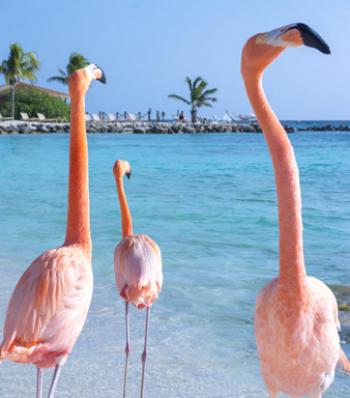In light of COVID-19, countries have new entry requirements for visitors
This item appears on page 2 of the October 2020 issue.
Dear Globetrotter:
Welcome to the 535th issue of your monthly foreign-travel magazine.
The outpouring of support for ITN in response to Evenyl Roemmich’s “Travel Resource Challenge” (July ’20, pg. 26) continues to move and stir us. Thank you.
A couple of subscribers have commented on the low number of pages in recent issues of ITN, offering suggestions for collecting more articles and letters to print. The dearth of pages is not due to a lack of material; it has to do with the reduction in advertising.
The number of pages in each issue has always been tied to the amount of advertisements. It’s a strict formula; more and larger ads mean we’re able to print more pages. In addition to income from subscriptions, it is proceeds from advertising that cover the costs of printing and mailing, which are significant.
But with the travel world in shutdown due to the pandemic, most tour companies and other travel-related firms have drastically cut back on their advertising, including in ITN. Ironically, we know of one company whose 2021 tours are almost sold out, so people are certainly eager to travel; they’re just waiting for safe opportunities.
Meanwhile, we are presenting as many pages as feasible and laboring to provide helpful, interesting and meaningful letters and articles … as supplied by YOU, our subscribers. Now, we do need submissions to keep coming in, so I encourage you to take this downtime to write a few words about an experience, encounter or special moment from your last trip outside the US, and email editor@intltravelnews.com or send it to ITN, 2116 28th St., Sacramento, CA 95818.
ITN will be what you want it to be with your continued help. Your letters, photos (for our “Where in the World?” section and elsewhere) and suggestions are always welcome.
Stepping back into the news side of travel…
With a worldwide pandemic still going, entering a foreign country (providing you’ve found one that allows you to visit) is no longer as simple as having the proper visa, if needed, and making quick work of Customs. Most countries, even ones with more relaxed rules, now require more than just a passport and visa for entry, and it’s imperative that travelers know what else is needed before trying to cross any borders.
Almost every country now requires each visitor to provide proof of a negative COVID-19 test result, typically one taken within the last 48 hours. A few countries will accept a positive COVID-19 antibody test result, but, as those tests have not proven very reliable, nor is it known how much immunity the antibodies provide, those test results are not accepted as universally as infection test results.
Another restriction a number of destinations are imposing is requiring foreign visitors to purchase international health insurance before entering. In some places, such as Aruba, the government’s own health insurance must be purchased upon arrival.
Though no vaccine for COVID-19 was available yet at press time, it’s easy to surmise that, once one is approved, countries will require travelers to have been administered a vaccine before arrival.
So if you’re planning on taking a trip to a foreign country within the next year or so, be sure to check your destination’s latest travel requirements. A good place to start is the country pages on the US State Department’s travel page. Visit travel.state.gov/content/travel.html, then click on “Find International Travel Information” and type the name of a country into the second search bar, halfway down the page, where it says “Learn about your destination.” Information is given, and links are provided to US embassy pages.
Even after you meet a country’s entry requirements, that doesn’t mean there won’t be any more surprises, as some places are taking additional steps to control COVID-19.
In Singapore, which currently requires arriving travelers to quarantine, the durations depending on which countries travelers arrived from, visitors are now required to wear electronic GPS bracelets to make sure they are properly quarantining themselves. Anyone caught flouting the rules can face up to six months in prison, a fine of SGD10,000 (near $7,335) or both. Lucky rule breakers might just get kicked out and not allowed back.
Travelers might find Dubai International Airport more friendly. Trained COVID-19 sniffer dogs are checking every incoming passenger. Studies have shown that the dogs can identify infected people with 92% accuracy.
Unfortunately, passengers won’t get to meet the fluffy detectors in person. The dogs are simply presented with swabs of passengers’ underarms but kept in a separate room.
CORRECTION to note —
Reading Jean Byers’ letter about a Holland America Line ship, “Fond Farewell to the Prinsendam” (July ’20, pg. 24), Pat Longest of Sacramento, California, did a double-take when she saw, “At a ceremony, I also received a bronze medal for 100 hours of sailing aboard HAL ships….”
With that brought to her attention, Jean wrote, “Of course, it was 100 days. It just goes to show you what several months of confinement will do to a senior brain.”
Having overlooked that error, ITN’s editors (including yours truly) are still trying to come up with our own excuse.

